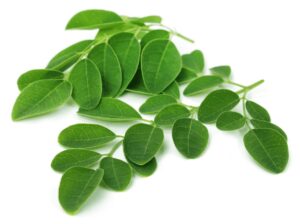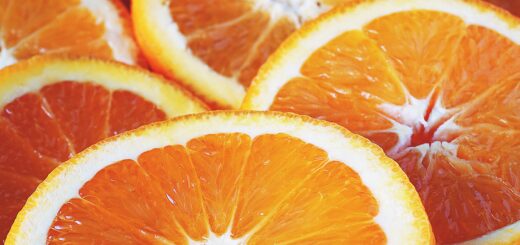Moringa
Moringa (Moringa oleifera) is a flowering plant (tree) that is mainly found in parts of Africa, Asia and the tropics. It is also known as the Drumstick Tree or Indian Horseradish Tree – although there are many other local names for it too. The leaves contain an incredible amount of nutrition, and are full of vitamins, minerals, protein, antioxidants and much more.

Benefits of Moringa
There are many great benefits of Moringa, The main ones are:
Nutrition – The nutritional profile of moringa contains…
- 2 x the protein of yogurt
- 4 x the amount of vitamin A of carrots
- 3 x the potassium of bananas
- 4 x the calcium of milk
- 7 x the vitamin C of oranges
Amino Acids – Very few foods contain all 9 of the essential amino acids that are needed by the body, but Moringa contains them all. These are – histidine, isoleucine, leucine, lysine, methionine, phenylalanine, threonine, tryptophan and valine.
Anti-Oxidants – The leaves are full of anti-oxidants, such as vitamin C, beta-carotene, quercetin, and chlorogenic acid. Anti-oxidants are required by the body to protect the cells from free radical damage that may occur from chemicals, smoking, pollution, radiation, and as a by=product of normal metabolism. -This study shows the anti-oxidant activity of Moringa oleifera leaves.
Lowers/Balances Blood Sugar Levels – The chlorogenic acid that is found in Moringa has demonstrated a usefulness in controlling blood sugar levels by helping cells to take up or release glucose as required. As well as chloregnic acid, it also contains isothiocyanates – which may help in the prevention and treatment of type 2 diabetes. This study shows the effect of Moringa on weight gain, insulin resistance, and hepatic gluconeogenesis in mice.
Cholesterol – Moringa may help to maintain a healthy cholesterol level, as this study has found.
Protection against Arsenic Toxicity – Moringa leaves may provide a protective effect – this study has found that it may be useful in reducing the effects of arsenic-induced toxicity.
Skin Benefits – Moringa contains natural antibacterial, antiviral and anti-fungal compounds. When applied to the skin in the form of a cream it has been shown to enhance skin revitalization and support anti-aging skin effects – see this study. The oil can also be used on skin, as it is very rich in nutrients (as well as palmitoleic, oleic and linoleic acids, and vitamins A, C and E).
How to Use
Moringa can be used in many ways. Use moringa powder in smoothies, soups, and other foods for extra nutrition. The capsules can be taken with a meal as a supplement, or moringa tea can drunk as a herbal tea. Moringa oil (also known as ben oil) can be used on skin, or added to creams or lotions.


Recent Comments